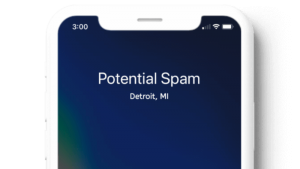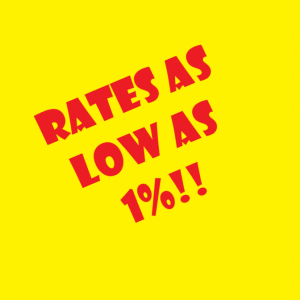Mortgages are confusing. Even worse, banks know mortgages are confusing and they use that confusion to their advantage — and to your detriment.
After spending 15 years in the mortgage industry, I want to share the 6 most common mortgage traps that can hurt you when you are looking for a mortgage.
1. Lenders Don’t Want You to Shop Around

That’s why the bank you have your checking account with sends you junk mail. If they can lean into their existing relationship with you, they can charge higher mortgage rates. That’s why the say “We care about the full relationship” and “We’re your community bank”.
Mortgage Loan Originators also buddy up with real estate agents. If your agent only sends you the name of one lender, be very skeptical. Remember what the agent’s incentives are. They want the house to close, so they get paid their commission. A high interest rate on your mortgage won’t impact your agent. They care that the loan gets approved and approved fast. Agents know good lenders so give them a shot, but make them compete for your business.
Banks also want to get you down their rabbit hole as fast as possible. They know filling out a long application, submitting all your financial documents, and pulling your credit is a painful experience. Who in their right mind would want to do this more than once? Compare before you jump down that rabbit hole.
2. Comparison Sites Will Sell Your Phone Number

Every day, more and more homebuyers and borrowers look online to find their mortgage. Consumers want to compare. They want to do their research. But the way these comparison sites make money is by asking for your phone number and then selling it to multiple banks.
What happens next? Your phone gets blown up. A bazillion cold calls. Your number goes straight into robo-dialers and massive call centers. You shouldn’t need a burner phone to compare mortgages! The mortgage industry should be embarrassed that this is where it’s landed. It’s a terrible customer experience.
That’s why we created Bundle, an anonymous mortgage marketplace that lets you control the process without the annoying cold calls.
3. Banks Will Max-Out Your Pre-Approval Amount
Pre-approval letters are for real estate agents. These let the agent know that they aren’t wasting their time showing you houses you can’t afford.
Banks get paid more interest when you take out a larger mortgage. Real estate agents get paid more commission when you take out a larger mortgage. The individual loan officer gets paid more commission when you take out a larger mortgage. Who’s making sure you are taking out a mortgage you’re comfortable with?
Banks issue maxed-out approval letters all day long. The more you borrow, the more the bank gets paid. Make sure you are comfortable with your monthly payment and the amount you have in savings after you buy your home. Here’s an easy quiz to help: How much house can I afford?
We’ve advocated for a pre-approval letter that gives you 3 options. See our proposal here.
4. You’re Pre-Approval Letter isn’t a Contract
Speaking of pre-approval letters, why do banks do this work anyway? They want to catch you at the beginning of the process and develop a relationship. They are hoping you will feel obligated to use them when it’s go time.
This is perfectly fine but remember that this is your decision. You don’t have to use the lender that pre-approved you. We’ve seen emails that bankers send to homebuyers ridiculing them for shopping around. Don’t fall for this. You don’t owe the bank that pre-approved you anything.
Sure, throw that lender in the mix, but don’t give them exclusivity. We are talking about thousands of dollars! You’ll rarely need a mortgage, make sure that you are getting a great deal when you buy a house and don’t let a banker’s feelings get in your way. I promise, they’ll be okay.
5. Banks Will Quote Interest Rate Without Fees and Mortgage Insurance

Discount points, mortgage insurance, interest rates, application fees. You need a PHD in physics to follow along when you’re talking to a lender. Some lenders don’t include mortgage insurance in their quotes or “forget” to put in hazard insurance.
The shell game is such a problem that lenders are required to send you a loan estimate that boxes them into a few good comparison numbers after you apply for a mortgage.
The absolute best number to use is the “In 5 Years Total Cost” on the 3rd page. This gives you a dollar amount, the total amount you’ll pay in mortgage costs in the first five years. Bundle automatically calculates this for you when you are comparing mortgages without requiring you to fill out an application with our partner lenders.
6. Don’t Fall for Advertised Rates You Can’t Get

You get excited, and click on the advertisement. What do you know? You don’t qualify for that rate, but they have a super special offer just for you.
Always get multiple personalized rates. This accounts for your exact situation which may change the type of mortgage a bank can offer you. It will include all the fees and mortgage insurance. Keep the term, loan amount, down payment the same when you request quotes.
Final thoughts
Mortgages are confusing. It can seem like a sleazy process, but if you look out for these common mortgage traps, you’ll be better off than most borrowers!
